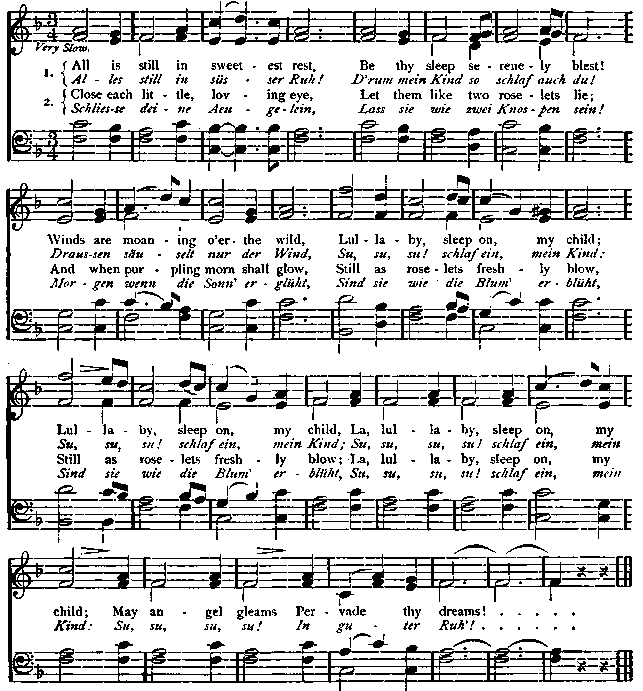Franklin Square Song Collection - online songbook
200 favorite songs and Hymns for Schools, Homes Lyrics & Sheet Music
| Share page | Visit Us On FB |
|
70 |
FRANKLIN SQUARE SONG COLLECTION. |
||||
|
Gradually, in Italy, singing became an art. What we mean by singing when we speak of it as a source of pleasure of the higher kind, is really an Italian art, which has been diffused over the civilized world; and the Italian school of singing is still the great school.—others, in so far as they differ from that school, being inferior. The first distinctive characteristic of the Italian school of singing is the delivery of the voice, the mode of uttering a single note. Italians generally (for singing in this way has be- |
come a second nature to the whole people) use their voices in quite a different way from the generality of other people. They uaturally utter their notes with a purity and a freedom rarely heard from untaught persons of other races. This delivery of the voice is the foundation of their excellence as singers. Indeed, it may almost be said to constitute that excellence; for not only is there no great singing without it, but the chief end of Italian vocal discipline is to attain execution united with this free vocal utterance. |
||||
|
THE SLUMBER-SONG. |
F. KUCKEN. |
||||
|
|
|||||
 |
|||||
|
There are singers who have voices of remarkable power, range and flexibility, who can never be great because, either by nature or from bad and ineradicable habit, they cannot attain this pure and free delivery of the voice. Their tone is guttural, or it is nasal, or it is rough, or it is unsteady, or something else; it may be merely constrained; in any case, the fault is more or less destructive. There may be great singing without great power, without remarkable flexibility, without the ability to execute a roulade or |
trill; but there can be no singing really great without this free, pure delivery of the voice. A singer who can go through the whole range of his voice, frcm low to high, swelling out the tone and diminishing it with the vowel sound of broad a (ah,) preserving that sound pure, and uniting with it perfect intonation through crescendo and diminuendo, has conquered much more than half the difficulties of the art of vocalization. All the rest, almost without exception, are mere " limbs and outward flourishes." |
||||